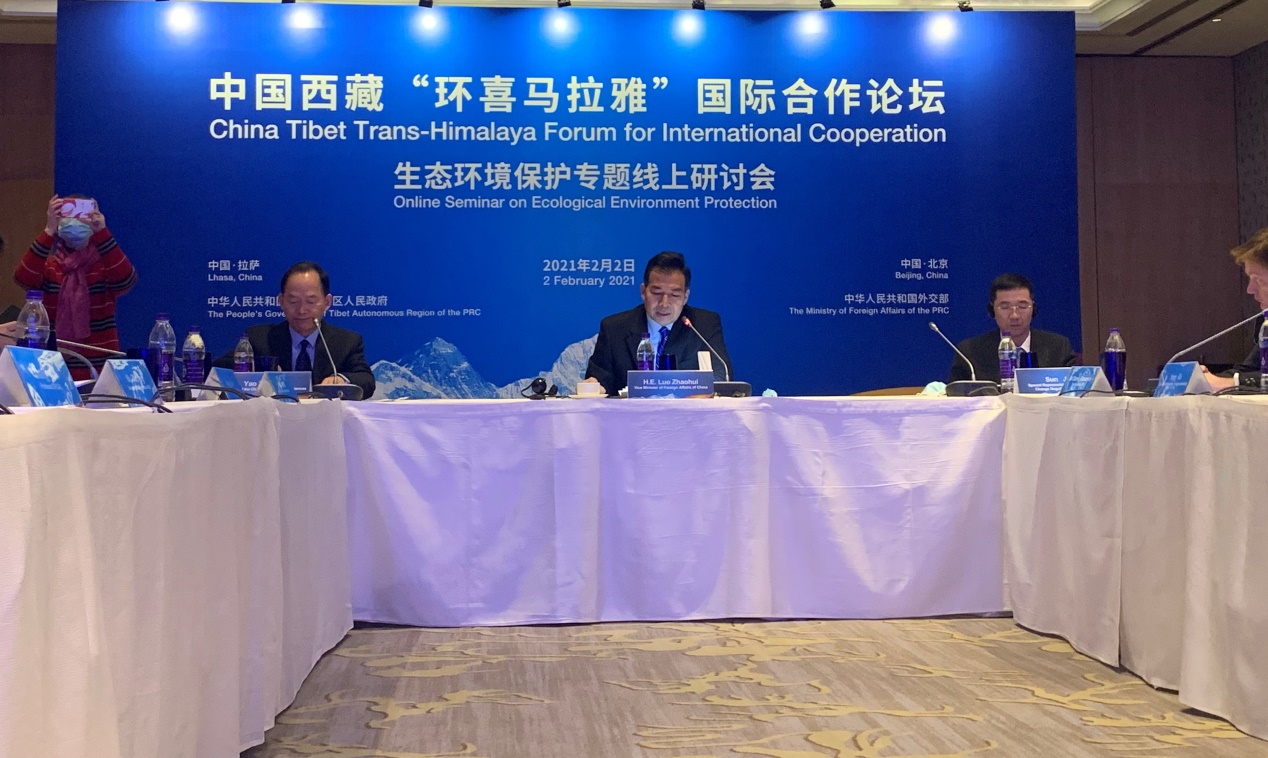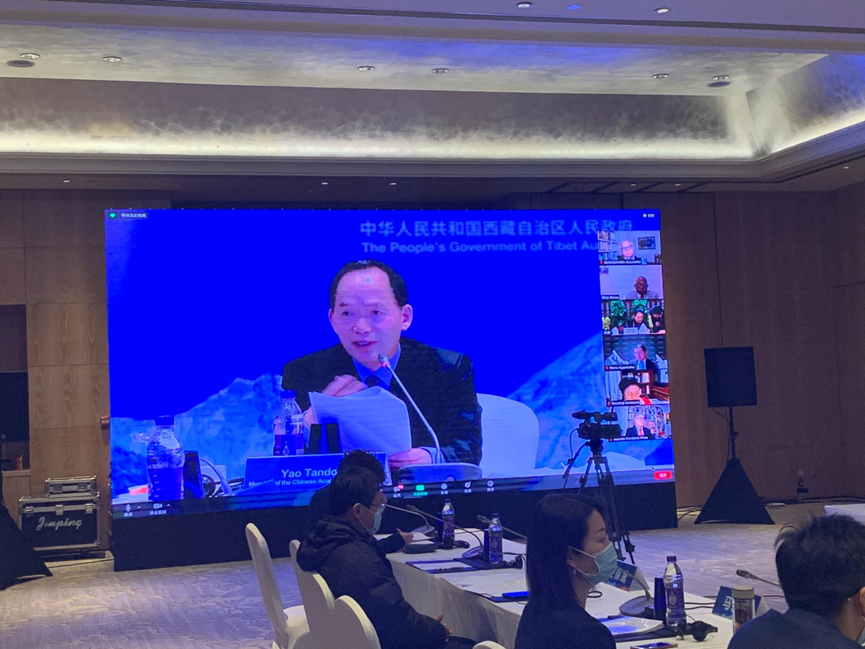Policymakers and experts called for more international cooperation on adaptation to Trans-Himalaya climate change at an international forum held in Beijing and Lhasa, and online with stakeholders joining from around the world, on Feb. 2. The global network and scientific projects of Third Pole Environment (TPE) were highlighted at the forum as part of the effort to promote green growth and sustainable development in the region.
 Openning Ceremony of the Forum Credit:TPE
Openning Ceremony of the Forum Credit:TPE
Hosted by the Tibet Autonomous Region and the Ministry of Foreign Affairs, the China Tibet Trans-Himalaya Forum for International Cooperation attracted policymakers and experts from 16 countries including Nepal, Bangladesh, Bhutan, the Republic of Korea, Thailand, Mongolia, France, Brazil, Peru and Bolivia, as well as three international organizations. Secretary of the CPC Tibet Autonomous Regional Committee Wu Yingjie made opening remarks and Chairman of the Tibet Autonomous Region Qizhala delivered a keynote address. Numerous other dignitaries attended the opening ceremony and made remarks. They included Special Adviser for Climate Change Affairs of the Ministry of Ecology and Environment Xie Zhenhua, former United Nations Secretary-General and Chairman of the Boao Forum for Asia Ban Ki-moon, former Australian Prime Minister Kevin Michael Rudd, China’s Vice Foreign Minister Luo Zhaohui, Chairman of the Pakistani Senate's Defense and Defense Production Committee Mushahid Hussain Sayed, Vice President and Corporate Secretary of the Asian Infrastructure Investment Bank Danny Alexander, founder of India's Forum for a New South Asia Sudheendra Kulkarni, CEO of the Energy Foundation Hal Harvey, and Canadian Senator Victor Oh.
Prof. Yao Tandong, co-chair of
Third Pole Environment(TPE) and academician of the Chinese Academy of Sciences, chaired the scientific group discussion at the forum and introduced adaptation efforts made under the TPE framework. With support from major projects such as the Second Tibetan Plateau Scientific Expedition and Research (STEP) project, TPE has built HORN, a high-cold region observation and research network consisting of 20 stations with the latest technology to enrich human understanding of climate change in the Trans-Himalaya. TPE has also set up monitoring and early warning systems for glacier collapse and Glacier Lake Outburst Floods (GLOF) as well as an intensive in-situ monitoring system for atmospheric pollution and water pollution in the region. It has facilitated application of desertification control technology in the big lake area of Central Asia as well. Based on evaluation of different ecosystems in the region, a Third Pole National Park Cluster was also proposed for ecological protection in the Trans-Himalaya region.
 TPE co-chair Prof. Yao chairing the scientific group discussion Credit: TPE
TPE co-chair Prof. Yao chairing the scientific group discussion Credit: TPE
While summarizing the forum’s group discussions, Prof. Yao noted that cooperation with international organizations and programs is one of the most effective ways to promote joint action for green growth and sustainable development. With centers in Beijing(China), Kathmandu (Nepal), Columbus (U.S.), Frankfurt (Germany), and Gothenburg (Sweden), TPE currently is working closely with WMO, UNEP, UNESCO, ICIMOD and IGS to monitor regional climate change, assess the regional environment as well as develop adaptation strategies for sustainable development.



